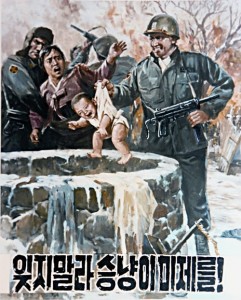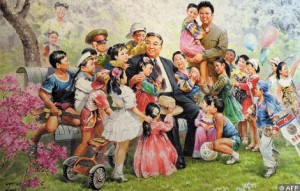“Fear is the mind-killer.” — Dune by Frank Herbert
Every malevolent leader knows how good fear is for keeping their subjects in line. All one must do is generate a phobia in someone that keeps them from seeing past the fear. If we are paralyzed by fear, we have lost our free will to do what we want. A good phobia is the ultimate tool to keep people from thinking and asking questions.

What is a phobia? A phobia is an extreme or irrational fear of something. Many people have phobias of spiders, riding in elevators, flying in airplanes, public speaking, driving in tunnels or over bridges, or of clowns. Of course, even people who experience these fears know that most spiders are harmless, millions of people ride in elevators, airplanes, and cars over bridges or though tunnels without incident. This shows the stark contrast between the emotion of fear and the knowledge of the object or event. The knowledge that these things are safe is not enough to overcome the emotion of the phobia. This is what makes phobias so powerful a tool for the malevolent.
Fear has a purpose in our existence. It keeps us safe from danger. In the distant past, when we as humans had not yet domesticated our environment, the unknown was dangerous. There were predators and pathogens of the kind we had never encountered in the places we had never been. This ingrained in us a primal fear of the things we do not know or do not understand. This gives a method I talked about earlier, information control, a major boost in effectiveness. Since by nature we fear what we do not know or understand, keeping someone from knowing or understanding something automatically causes them to fear it to some degree.

This basic fear can then be cultivated into a full blown phobia by mischaracterization, demonization, or any other form of misinformation. How about some examples. Lets talk about North Korea. The people in North Korea are almost completely cut off from any interaction or information from the outside. On their own, they have no ability to learn anything about the rest of the world. This is the essence of information control. On it’s own, this isolation makes them distrustful of outsiders. Added to this is the state propaganda that they are fed constantly. Outsiders, especially the United States, are almost literally demonized.
They are portrayed as sub-human monsters who enjoy inflicting horror and suffering on their victims. The victims being, of course, the target of the propaganda. The images are designed to invoke strong emotions. But notice that no evidence is given. The images do not reflect real events. In fact, those of us in the west would be appalled if we learned about anything even close to this horrible being done. The images imply that these horrors will actually happen if this fabricated enemy is not resisted, as the ruling party wants them to be. These negative images are only half the work.

The other side, the North Korean government under a de-facto dictatorship, is portrayed as the saviors of the country, loved by all. Pictures of the ‘Great Leader’, Kim-Il-Sung, and his children who ruled after him are everywhere in North Korea. There are over 500 statues of him throughout the country. He is given credit for everything good that happens for anyone, and his enemies are blamed for everything bad. He is worshiped in a cult of personality that pervades the entire population. The word ‘cult’ is most often used to refer to religious groups, but it can also refer to political, business or even benign-sounding self-improvement organizations. In all these groups, the methods used to control people are similar and referred to as “mind control“. Ironically, the methods of mind control were perfected during the Korean war.
In this kind of environment, asking ‘why’ is extremely dangerous. North Korean gulags are full of people, and their families, who questioned the actions or policies of the ruling party.